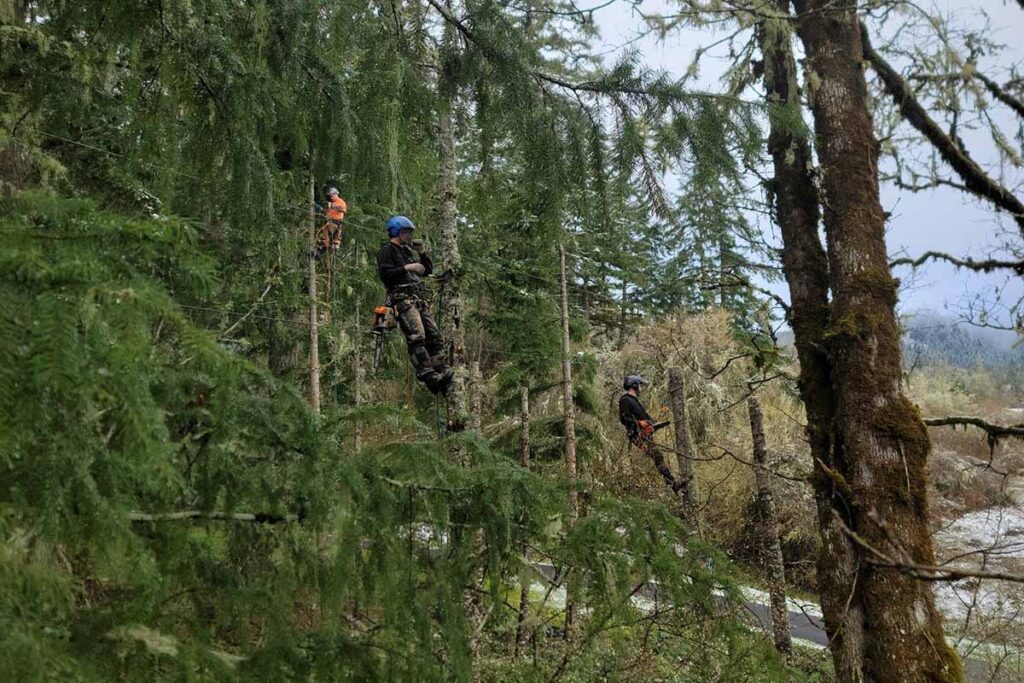
Douglas Electric Cooperative in Oregon has been awarded a $9.1 million grant by the U.S. Forest Service to remove trees at risk of falling on power lines and sparking wildfires that threaten homes and businesses.
The number of dead and damaged trees that need to be removed has skyrocketed in recent years after severe storms in Oregon and drought throughout the West, said General Manager Keith Brooks.
“It’s a tinderbox filled with 200-foot trees lined up next to our right of way,” he said. “Just one wrong tree coming down and hitting our lines could spark a wildfire fueled by all those weakened trees.”
The funds will enable the Roseburg-based co-op to double its right-of-way crews from four to eight and complete its vegetation management cycle in three to four years instead of every five to six years, Brooks said. The co-op serves more than 10,000 members in a 2,300-square-mile territory of mountains and forest land.
The grant also will allow Douglas EC to remove dangerous trees from beyond its own rights of way. That includes private land owned by co-op members and federal land managed by the Forest Service and the Bureau of Land Management.
“The trees beyond our right of way are becoming more and more of a problem,” Brooks said. “For every 100 tree-related outages we’ve had, we saw that 95% percent were outside of our traditional right of way. We keep our right of way maintained well, but we’ve had to expand our focus.”
Without the federal grant, the co-op would have had to raise rates for members to pay for its expanded wildfire mitigation efforts, Brooks said.
“This grant has been a blessing for us because we were already stressing our tree budget,” he said. “This is a way to help tackle the problem without dramatic rate increases for our membership.”
The grants will complement the co-op’s already extensive fire management plan, which includes equipping each line crew with a 500-gallon firefighting wagon, new fire extinguishers and water cans to help suppress flames until firefighters arrive. The crews take this equipment with them everywhere during fire season, which is getting longer and longer because of climate change, Brooks said.
“It’s happening,” he said. “There’s absolute evidence that things are drier. There’s less rain falling from the sky and more trees competing for less resources, making them more susceptible to insects and disease. We’re trying to de-escalate the threat.”
The co-op’s territory was largely spared by the devastating wildfires that roared to their east, north and south in the fall of 2020, killing 11 people, destroying small towns and burning more than a million acres.
No wildfires started in Douglas Electric Cooperative’s territory that year, but there were a few that spread a short ways into its service area from other places, Brooks said. The co-op only had to shut down one line briefly, affecting about 100 members.
“We’re in a little bit of a bubble where we don’t get winds as high as they do in other areas,” he said. “But we have been surrounded by fire outside our territory. And our day will likely come. We’re doing what we can to stave that off.”
Erin Kelly is a staff writer for NRECA.